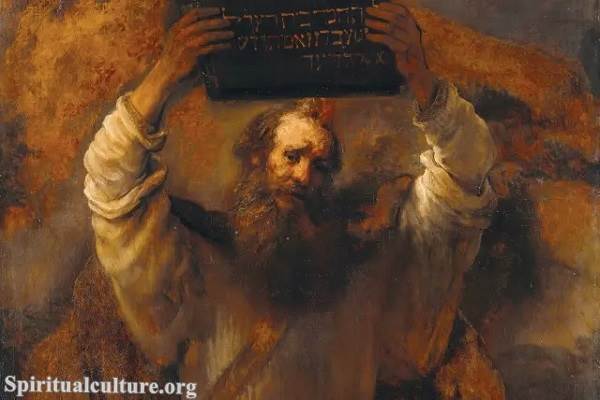A mezuzah is not just a decorative piece or a cultural artifact; it holds a profound spiritual meaning and is deeply entrenched in the Jewish faith and tradition. This article will explore what a mezuzah is, its significance, and its role within Judaism.
What is a Mezuzah?
The term “mezuzah” is a Hebrew word which means “doorpost.” A mezuzah is a small, rectangular box, often beautifully decorated, which is affixed to the doorpost of Jewish homes. However, the mezuzah is not merely an ornamental object. It is a sacred item that serves a religious purpose.
Inside the mezuzah, you will find a tiny scroll of parchment, known as a klaf, on which the Shema, one of the most important prayers in Judaism, is carefully handwritten in Hebrew. The Shema is a declaration of faith, a pledge of allegiance to One God. It is found in Deuteronomy 6:4-9 and 11:13-21. It is a call to love God and adhere to His commandments.
The mezuzah is placed on the right side of the doorpost as one enters the home. It is typically positioned at an angle, with the upper part inclined towards the inside of the house. This custom is a compromise between two ancient rabbinical opinions, one suggesting vertical placement and the other horizontal.
Mezuzah meaning
The mezuzah holds a central place in Judaism. It is not merely a symbol but a mitzvah, a commandment from God. The practice of affixing a mezuzah comes directly from the Torah, where it states, “Write them on the doorposts of your house and on your gates” (Deuteronomy 6:9). This commandment is taken literally by Jews, thus the tradition of the mezuzah.
The mezuzah serves as a constant reminder of the Jewish faith and God’s commandments. Every time a Jew passes through a door with a mezuzah, they may touch it and then kiss their fingers, demonstrating respect and love for God and His commandments. It is a daily affirmation of their faith and a physical reminder of their religious duties.
Moreover, the mezuzah is seen as a protection for the home and its inhabitants. It is not uncommon for a Jew to touch the mezuzah when leaving home, asking for a safe return. This protective aspect of the mezuzah is deeply ingrained in Jewish tradition and belief.
The mezuzah also serves as a sign of Jewish identity. By affixing a mezuzah, Jewish individuals or families publicly express their faith and commitment to Judaism. It is a proud declaration of Jewish presence and continuity, a testament to the enduring legacy of Judaism.
In conclusion, the mezuzah is a profound symbol in Judaism, embodying faith, commitment, and divine protection. It is not merely an object but a living tradition, a tangible expression of Jewish identity and spirituality. Each time we pass a mezuzah, we are reminded of the rich heritage and profound faith that it represents. The mezuzah, in its humble simplicity, carries the weight of thousands of years of Jewish history, tradition, and faith. It is a small but powerful testament to a religion that has endured through the ages.

